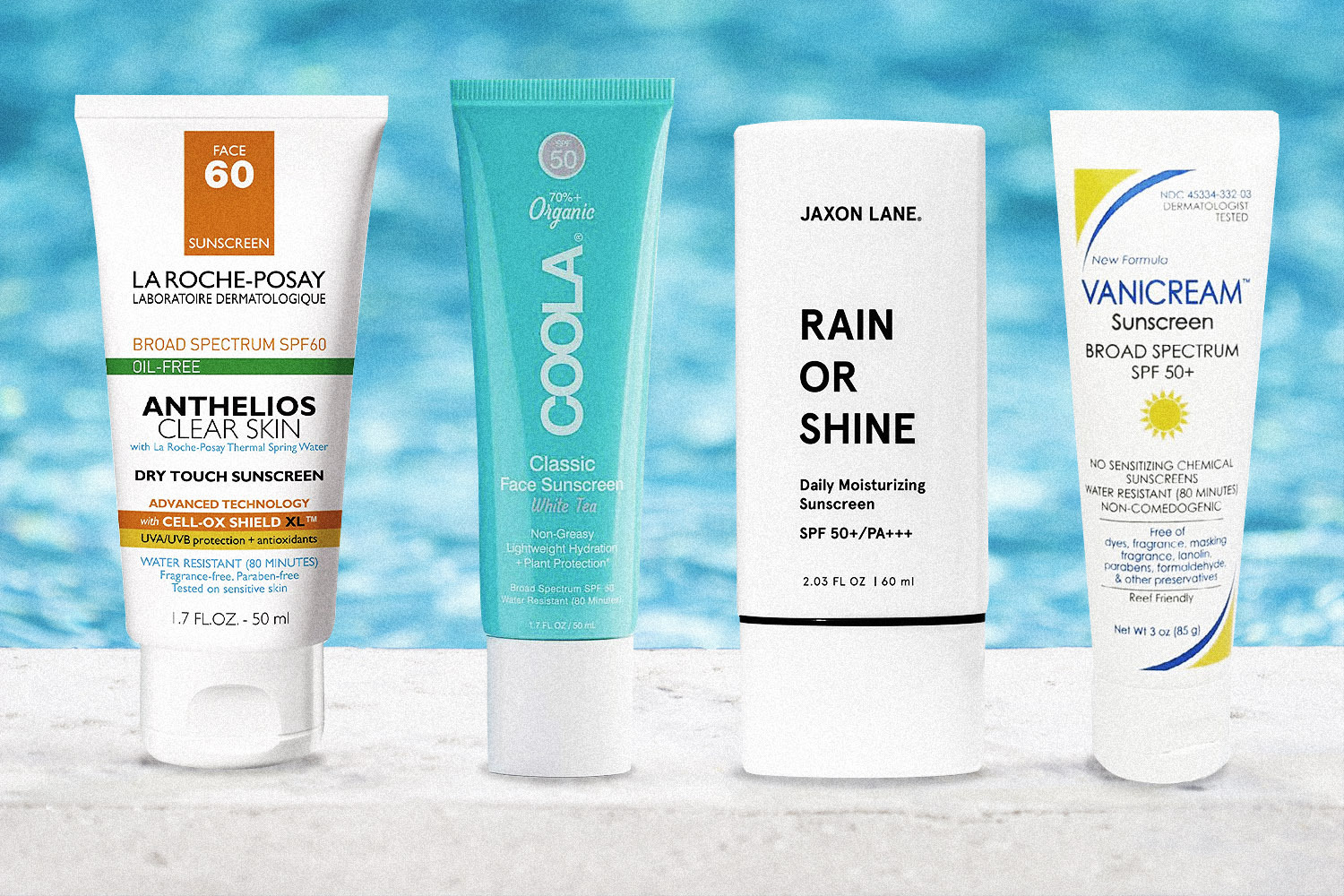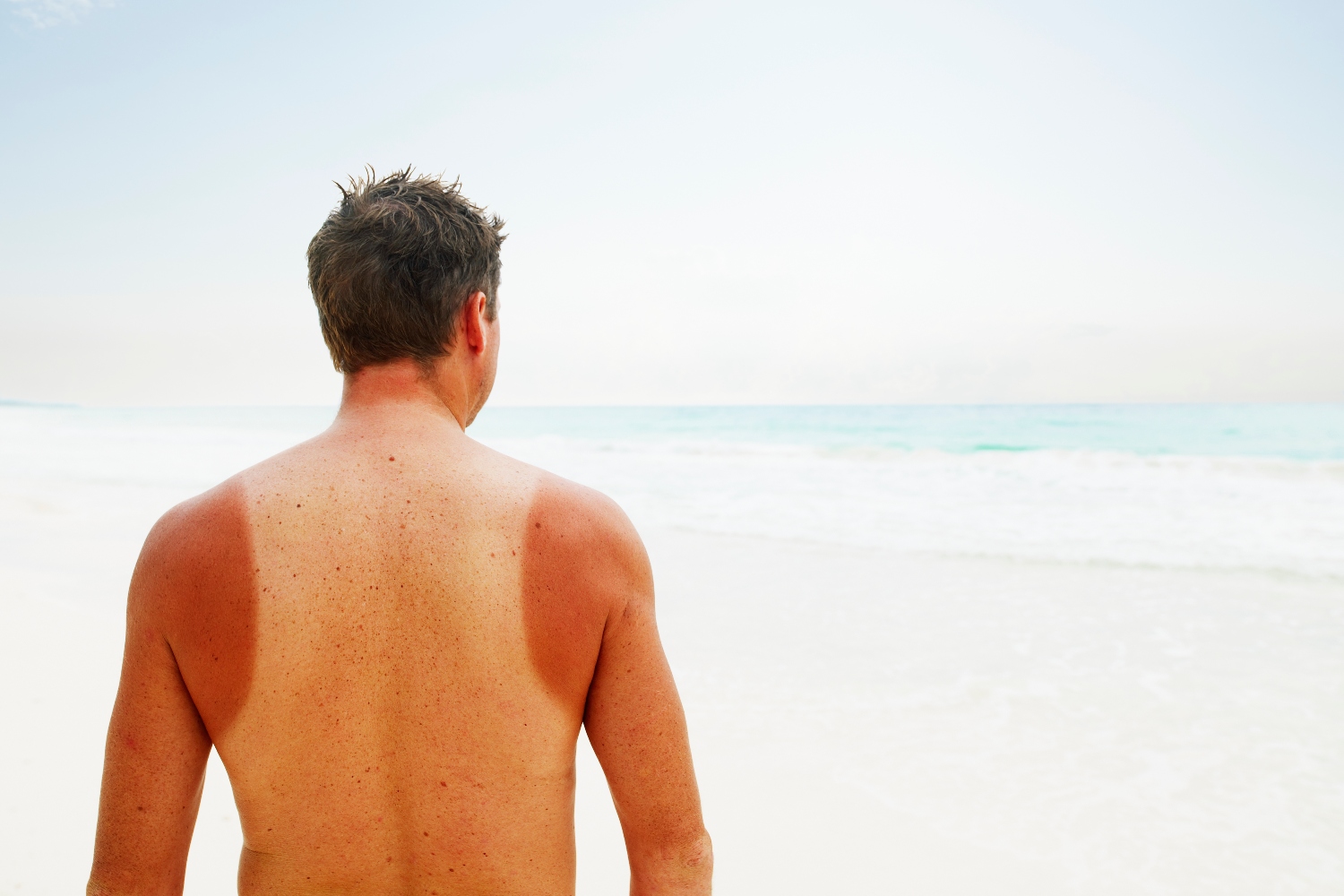It’s no longer surprising to hear a dermatologist, cosmetician or significant other remind you that you should be wearing sunscreen every day. At this point, we all know the risk: One in five Americans will develop skin cancer in their lifetime, according to an estimate cited by the American Academy of Dermatology.
The numbers are especially concerning for young men. When melanoma is left unchecked and metastasizes, the five-year survival rate nosedives from 99% down to 30%. From 1995 to 2014, head and neck melanoma jumped by 51%. And for young, non-Hispanic white men aged 15-39, they’re 55% more likely to die from melanoma than women of the same age group.
The best defense against skin cancer is consistent use of sunscreen; formulators have tried encouraging participation where they can, and especially amongst men. Most daily facial moisturizers now include broad spectrum SPF 15, for instance, while male-targeted brands like Jaxon Lane market their sun lotion serums as “rain or shine.”
It’s still an uphill battle to convince everyone to lather up each morning, though. While most won’t protest the practice ahead of a beach day, it’s difficult to mentally equate sunscreen with other bathroom rituals — putting in contacts, applying deodorant, etc. — when it tends to leave the skin alternatively oily or chalky.
Chemical sunscreens feel like you’ve doused yourself in non-stick cooking spray. Mineral sunscreens invoke that horrifying image of Mark Zuckerberg on a surfboard. Both are effective at blocking the sun’s cancer-causing rays, in their own ways — the former dispatches UV light via a chemical reaction, the latter acts as a physical shield against the rays — but neither are all that subtle about it.
That said, as Amanda Mull reports in a recent piece for The Atlantic, other countries have spent years improving their sunblock offerings, with an array of products that contain more elegant ingredients. As she writes:, “[These sunscreens] degrade more slowly in sunlight, [are] less readily absorbed by the wearer’s skin, and help stabilize other UV filters when mixed with them, potentially improving their efficacy. Wearers don’t need to reapply it as often in order to remain protected, and they may not worry as much about the putative risks of carrying chemical filters in their bloodstream.”
Considering the meteoric growth of the cosmetics industry, you’d be excused for assuming that sunscreen has undergone decades of R&D to reach a newer, better iteration. But in the U.S., that simply isn’t the case. As sunscreen is treated like an over-the-counter drug by the FDA, all ingredients face an approval process — and, according to Mull, this process has been bogged down in regulatory red tape for years.
This has left many in the medical community “significantly frustrated.” You can understand why they’re so upset. It really is a life and death issue. However silly it may seem that a man won’t wear sunscreen because, say, it won’t rub in well with his beard…that’s one dissatisfied customer who might end up a skin-cancer statistic. Allowing domestic manufacturers to make these products the best they can possibly be will benefit everyone.
In the meantime, consider shopping sunscreens from Europe and Australasia, which are also subject to scrutiny from medical officials, yet have streamlined their processes better than we have over the years. You can find these sunscreens pretty easily online — “best sunscreen Australia” is a great place to start on Google; for obvious reasons, the people down there needed to perfect the art of sun blocking — but try searching specifically by ingredient. Both bemotrizinol and bisoctrizole are favorites around the globe, but could be sitting in the slush pile at the FDA right now.
If you’re not inclined to start shipping sun lotion from the other side of the planet (though Amazon simplifies matters, thanks to third-party sellers), try making your peace with sunscreen’s imperfect properties. While the Stateside options won’t blend in to our standards quite yet, it will keep you safe during summer fun.
The Charge will help you move better, think clearer and stay in the game longer. Subscribe to our wellness newsletter today.


















